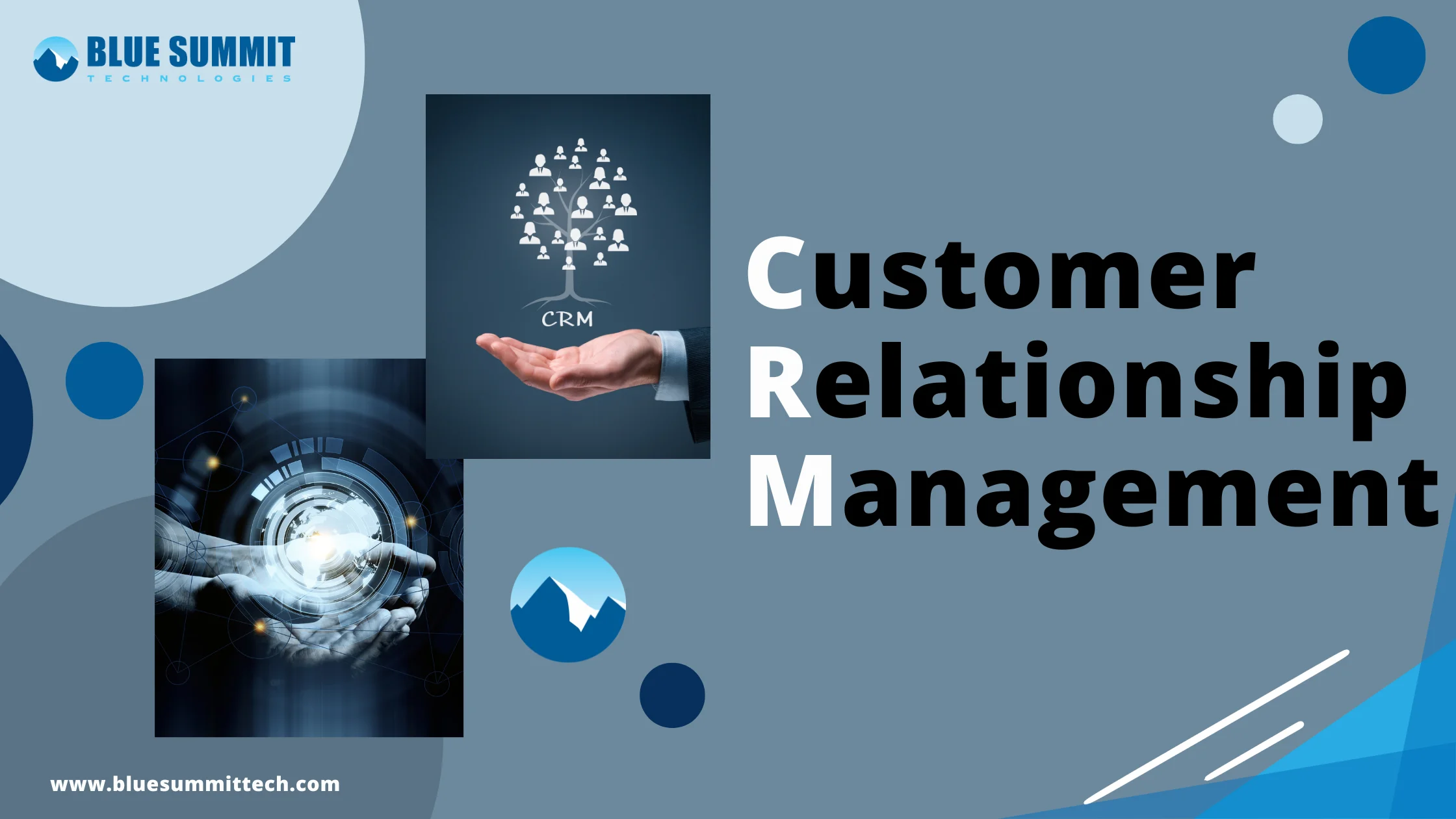
Posted on Wednesday, Mar 20th, 2024
Better business bond with CRM adoption
A CRM (Customer Relationship Management) system is a technology that manages all your company’s relationships and interactions with customers and potential customers. The goal is to improve business relationships, streamline processes, and enhance profitability with CRM adoption. A CRM system helps companies stay connected to customers, identify sales opportunities, record service issues, and manage marketing campaigns, all in one central location. It provides a clear overview of customers, including their previous history with the company, the status of their orders, any outstanding customer service issues, and more.
Understanding CRM Adoption
CRM system works by gathering and organizing all data related to customers, such as contact information, sales history, service records, and more. After collating and analyzing this data, the CRM system provides insights about customers, automates crucial business processes, and builds better customer relationships.Here’s a breakdown of how it typically functions:
1. Data Collection
The CRM software efficiently gathers diverse data from multiple channels such as emails, social media platforms, company websites, and various customer touchpoints. This comprehensive data collection ensures a holistic view of customer interactions.2. Data Organization
Once collected, the CRM meticulously organizes the data within its system. This organization facilitates the creation of detailed profiles for each customer or lead, enabling businesses to better understand and cater to individual needs.3. Data Analysis
Leveraging advanced algorithms and analytics tools, the CRM system delves deep into the collected data. Through sophisticated analysis, it uncovers valuable insights such as sales opportunities, customer preferences, and emerging trends, empowering businesses to make informed decisions.4. Automation
Building upon the insights gained from data analysis, the CRM system streamlines operations through automation. Tasks like sending follow-up emails, scheduling appointments, and updating sales opportunities are automated, saving time and ensuring timely responses to customer needs.5. Reporting
CRMs play a pivotal role in generating comprehensive reports that offer actionable insights. These reports provide businesses with a clear understanding of customer behavior, sales trends, and the effectiveness of marketing strategies. By visualizing key metrics and performance indicators, businesses can refine their strategies and optimize outcomes.Importance of CRM adoption in modern business
The adoption of Customer Relationship Management (CRM) systems in modern businesses is crucial for several reasons:1. Improving Customer Relationships
CRM systems serve as invaluable tools in nurturing lasting connections with customers. By facilitating regular communication and streamlining processes, businesses can deliver enhanced customer service experiences, fostering loyalty and trust.2. Enhancing Customer Retention
Through insightful analysis of customer behaviors and preferences, CRM systems empower businesses to tailor strategies aimed at bolstering customer loyalty. By anticipating and meeting customer needs effectively, companies can significantly enhance retention rates.3. Increasing Sales
Leveraging the insights provided by CRM systems, sales teams can gain a deeper understanding of customer needs and preferences. Armed with this knowledge, they can tailor their approaches and offerings, ultimately driving increased sales and revenue.4. Streamlining Business Processes
CRM systems play a pivotal role in streamlining business processes by automating routine tasks. This automation not only saves time but also enables employees to focus on more strategic endeavors, propelling business growth and efficiency.5. Data-Driven Decision Making
Centralizing customer data within CRM systems enables businesses to conduct in-depth analysis and derive actionable insights. Armed with this information, organizations can make well-informed decisions that align with overarching company objectives, driving success and innovation.6. Personalized Customer Experience
With CRM systems, businesses can craft personalized marketing and sales initiatives tailored to individual customer preferences. By delivering targeted and relevant content, companies can enhance customer satisfaction and engagement, fostering long-term loyalty.7. Improved Information Organization
CRM systems systematically organize vast amounts of customer data, making it easily accessible and comprehensible for businesses. This organized approach not only improves data management but also facilitates swift and accurate decision-making processes.8. Enhanced Communication
By providing all employees with access to consistent and up-to-date customer data, CRM systems promote enhanced communication across departments. This ensures a cohesive approach to customer interactions, ultimately leading to improved customer satisfaction and retention.Strategies for Successful CRM Adoption
1. Secure Leadership Buy-in
The endorsement of executives is pivotal for a successful CRM implementation. Leaders must advocate for the CRM system, emphasizing its significance to all team members and departments.2. Prioritize User-friendliness
The usability of the CRM platform significantly impacts its adoption rate. Opt for a system with an intuitive interface and invest in comprehensive training sessions to ensure that users feel comfortable navigating the software.3. Focus on Value
It's essential to articulate the tangible benefits of the CRM to employees. Showcase how the system streamlines tasks, enhances productivity, and contributes to individual and team success, thereby fostering enthusiasm for its adoption.4. Foster a Culture of Collaboration
Cultivate an environment of collaboration and inclusivity by actively seeking input from users. Involve them in the customization process to tailor the CRM to meet their specific needs and workflows, promoting a sense of ownership and buy-in.5. Celebrate Wins and Milestones
Recognize and reward employees who actively engage with the CRM and contribute to its effectiveness. By celebrating milestones and successes, you reinforce the importance of CRM utilization and inspire continued participation across the organization.Why is it Beneficial for Businesses?
The benefits of implementing a CRM system are manifold. Firstly, it allows businesses to streamline their operations by centralizing customer data, eliminating the need for multiple spreadsheets or disparate systems. This not only saves time but also reduces the likelihood of errors and inconsistencies in data management.CRM systems facilitate better communication and collaboration among team members, as everyone has access to the same up-to-date information. Whether it’s sales reps tracking leads, marketing teams analyzing campaign performance, or customer support agents resolving inquiries, a CRM system ensures seamless coordination across departments.
CRM systems provide valuable insights into customer behavior and preferences through data analytics. By analyzing patterns and trends, businesses can identify opportunities for upselling, cross-selling, and targeted marketing campaigns, ultimately driving revenue growth and customer satisfaction.
Conclusion
A well-utilized CRM empowers your team to cultivate stronger customer relationships, make data-driven decisions, and achieve sustainable business growth. So, don't let your CRM gather dust - turn it into a powerful tool that fuels your success!Please don't hesitate to reach out to us today to explore further insights into the technology and its capabilities. At Blue Summit, we are dedicated to providing comprehensive consulting support tailored to your needs.
Blue Summit has collaborated with OdiTek Solutions, a frontline custom software development company. It is trusted for its high service quality and delivery consistency. Visit our partner's page today and get your business streamlined.
REFER TO OTHER RELEVANT CONTENTS

.NET MVC Framework
Microsoft's .NET MVC, more commonly referred to as ASP.NET MVC, is the next generation of the acclaimed ASP.NET technology platform. The.NET MVC Framework is a powerful, lightweight, pattern-based open-source framework for building dynamic, rich, and sophisticated websites. It uses the most recent web standards to...
read more







